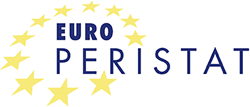PHIRI (Population Health Information Research Infrastructure) is 36 months projects funded by the European Commission. PHIRI builds on the achievements of the BRIDGE Health and the Joint Action on Health Information (InfAct) projects, which covered major EU health policy areas base on the past experience of European project on indicators.
The project was launched in November 2020. It includes 41 partners in 30 countries.
PHIRI’s GOAL is to set up a research infrastructure to facilitate and generate the best available evidence for research on health and well-being of populations as impacted by COVID-19. PHIRI will allow for better coordinated European efforts across national and European stakeholders to generate the best COVID-19 population health knowledge.
In doing so, PHIRI will lay the foundation to build a Distributed Infrastructure on Population Health (DIPoH) to be used to overcome future crisis and ensuring the sustainability of the project. The intent is to support research across Europe through the identification, access, assessment and reuse of population health and non-health data to underpin public health policy decisions.
The project is divided in 9 ambitious work packages with three transversal topics.
The Euro-Peristat contribution involves (WP6):
- Investigate the pandemic’s direct (infection by SARS-COV-2) and indirect effects (related to health service accessibility and confinement) on perinatal health using routine population birth data,
- Assess wether effects differ by socioeconomic context,
- Use resultsto assess how policies in participating countries may have impacted health effects and social inequalities and
- Improve preparedness for future epidemics by creating a template for utilization of routine population birth data and identifying needed improvements to current systems.
